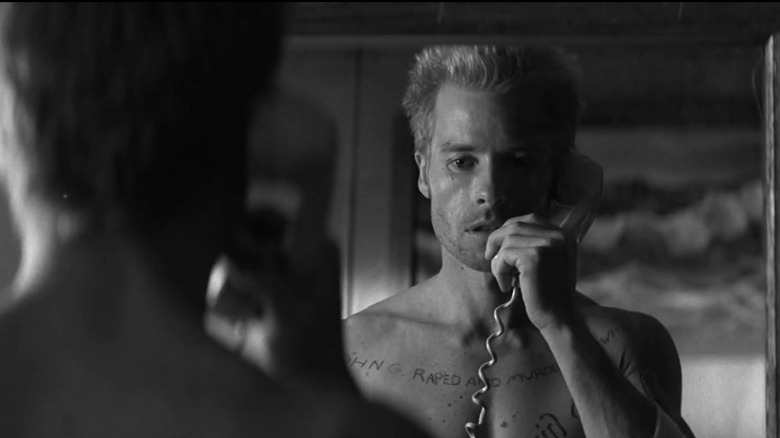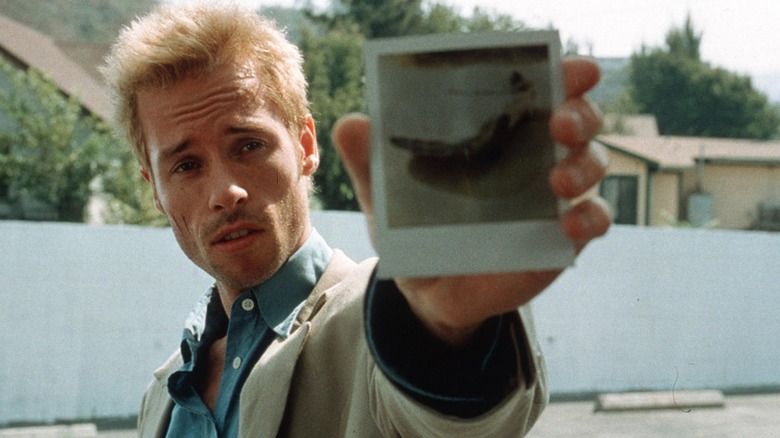How Memento Mirrors The Mind Of Christopher Nolan
As only his second film, "Memento" is quite the primer for anyone diving into the enigmatic storytelling of Christopher Nolan. Whether its your first or millionth viewing, the odyssey of short-term memory loss victim Leonard Shelby (Guy Pearce) is a crash-course in the director's mind-stunning style. But "Memento" is also something of a tableau of Nolan's particular outlook on how we perceive memory — and how we distort it to mold our own narratives.
As Leonard searches for his wife's murderer, he's impeded by the 15-minute intervals through which he perceives life, while Nolan's structuring of the film into two storylines — one chronological and one inverted — fragments the story further. Even after multiple viewings sometimes you need a roadmap drawn by the creator himself. But even as the film's architect, "Memento" is more closely linked to Nolan's bewildering mind than you might think.
Nolan relies on mementos as much as Leonard
As a consequence to his condition, Leonard holds a deep distrust for memory, instead relying on his various tattoos, polaroids, and notes to "remind" himself of the facts. It's an extreme solution — but then again nothing about his life feels ordinary. Nolan elaborated on the initial purpose of Leonard's anterograde amnesia during an interview in 2014:
"We were more interested in the metaphorical potential, particularly because we view the condition from inside his head, and he views it in simple, absolute terms. Which allows him to live under the illusion that he can replace his short-term memory with his systems of notes and pictures and tattoos and so forth. Ultimately the film is really just an extrapolation of the way I live my life."
Just like as Leonard does, Nolan also relies on various mementos to get through the day as well. Sure they might not guide life-or-death decision and, yes, the director's memory is still very much intact, but it points to people's need for markers as we move through life. Nolan described how his methods made their way into "Memento":
"I write notes on my hands, I take pictures of things, I have objects around in my apartment to remind me of things. So the script really is just an exaggeration of this. And I felt it was important to maintain, because to me what makes the film interesting is that it is an exaggeration, an extrapolation, of all of our lives. It's not [a] freakshow, this is not a freakish character, this is actually an everyman. This is one of us. He's a vehicle for making us think about our place in the world and how we identify ourselves in a slightly different way."
Leonard's inability to create new memories only accentuates his reliance on his mementos — it doesn't cause it. We all do what Leonard does in a thousand different ways. Especially during a digital age, it's hard not to look at an Instagram feed and not see all those boxes as our own little polaroids where we scrawl half-truths. As Nolan explains, this is what makes him an everyman: his illusory belief that his mementos are immutable truths when in reality, they're just another means for him to be manipulated — not by others — but by himself. In Leonard's own words: "We all lie to ourselves to be happy."

